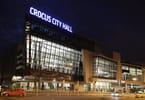The Ministry of Commerce, Industry, and Tourism through the Cyprus Tourism Organisation spends millions of Euros in “bonus plans” to tour operators from all over the world (at least all the markets considered as primary) who land tourists at Larnaca (LCA) and Paphos (PFO) airports. This policy is widely accepted in the tourism sector since the bonus is paid to the tour operators based on the number of passengers landed or as advertisement fees for the campaigns they make in the country of origin.
The list of the tour operators is huge and available in the public domain with companies from the UK, USA, Germany, France, Italy, East Europe, Arab countries, and many others. What is not public is the bonus each tour operator is paid and the agreement signed with the CTO.
Lately, there were rumors that an Italian tour operator that had a bonus agreement with the Republic of Cyprus also had contracts with hotels in the Turkish-occupied north. This provoked the reaction of the minister, as well as the tourism professionals in the republic and the minister promised to investigate the matter further.
The fact that tourists land in Larnaca and then are taken by taxi, private car, or other means of transport to the hotels in the north is neither a secret nor a lie. It can be verified very easily just by looking around the arrivals hall of Larnaca airport and seeing taxi drivers holding up signs with names like “Acapulco Hotel – Kyrenia,” “Manolia Hotel Lapythos,” “Dome Hotel – Kyrenia,” and many others including the plethora of unregulated casinos.
The big tour operators that land in Larnaca and Paphos such as Thomas Cook and Thomson – TUI not only sell tourist packages with flight, hotel, and transfers, but they also offer flight-only options. This is done all over the world and there is nothing wrong with it. On the contrary, they cater to the FIT market (free independent travelers) that has a different spending power and interests.
In Cyprus, as long as the checkpoints to the north are still open, there is no way to control who visits the “north” and why. What has happened in the last few years is that tourists whom the Greek Cypriots taxpayers have paid to come to Cyprus, land in Larnaca and then spend their holidays in hotels that were built on occupied Greek Cypriot land. The Internet and especially travel forums and the social media sphere are full with comments like “We had a wonderful time in North Cyprus, we flew to Larnaca with Thomsonfly…”
This shows us that the government in an indirect but effective manner is taking the north out of the economic isolation. The Greek Cypriot taxpayer, even now in times of crisis and when tourist overnights are down by at least 20 percent, still supports the model of rewarding operators and airlines. It is not possible to control who is crossing the Green Line since the check points are open. We cannot prohibit EU citizens from going on holiday on European soil (albeit militarily occupied), but we can stop paying for that.
The government needs to stop pumping tax money into the bank accounts of the big guys and look into a serious change of tourism policy and make this policy very personal. It needs to look at tourism as a face-to-face relationship with each and every visitor to Cyprus. New bonus plans are needed that have a direct impact on all the visitors and encourage independent travelers to come to Cyprus and stay – with bonus plans that promote and reward the country’s hospitality and do not give in to the threats of the “feudal lords of tourism.”
In a speech made by a director of Thomson – TUI during the Hoteliers Association Conference in Nicosia on February 12 when in front of the minister of public works and the minister of tourism, he said, “help us to help you,” which in an indirect manner meant asking for more money. He and his team were pushing for a 20 percent discount on the contracted rates for 2009 – something that they achieved. During the lunch break at the conference he further secured a 5 percent retroactive discount on the pending invoices in order to “decrease corporate losses.” Nevertheless the biggest achievement for companies like TUI was to make sure that the Cypriot taxpayer continues to pay them to bring visitors to the legal airports of the country and then let them free to visit “the uncovered Cyprus where time seems stopped, the authentic Cyprus, north Cyprus.”
For Cyprus tourism what is needed are measures without collateral damage, measures that assure a future to the only industry left which you can be a minister of, control of those measures to make sure they really bring a benefit.






















